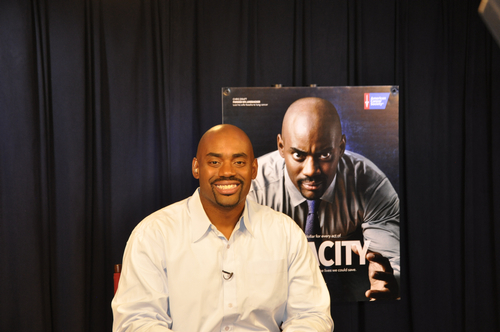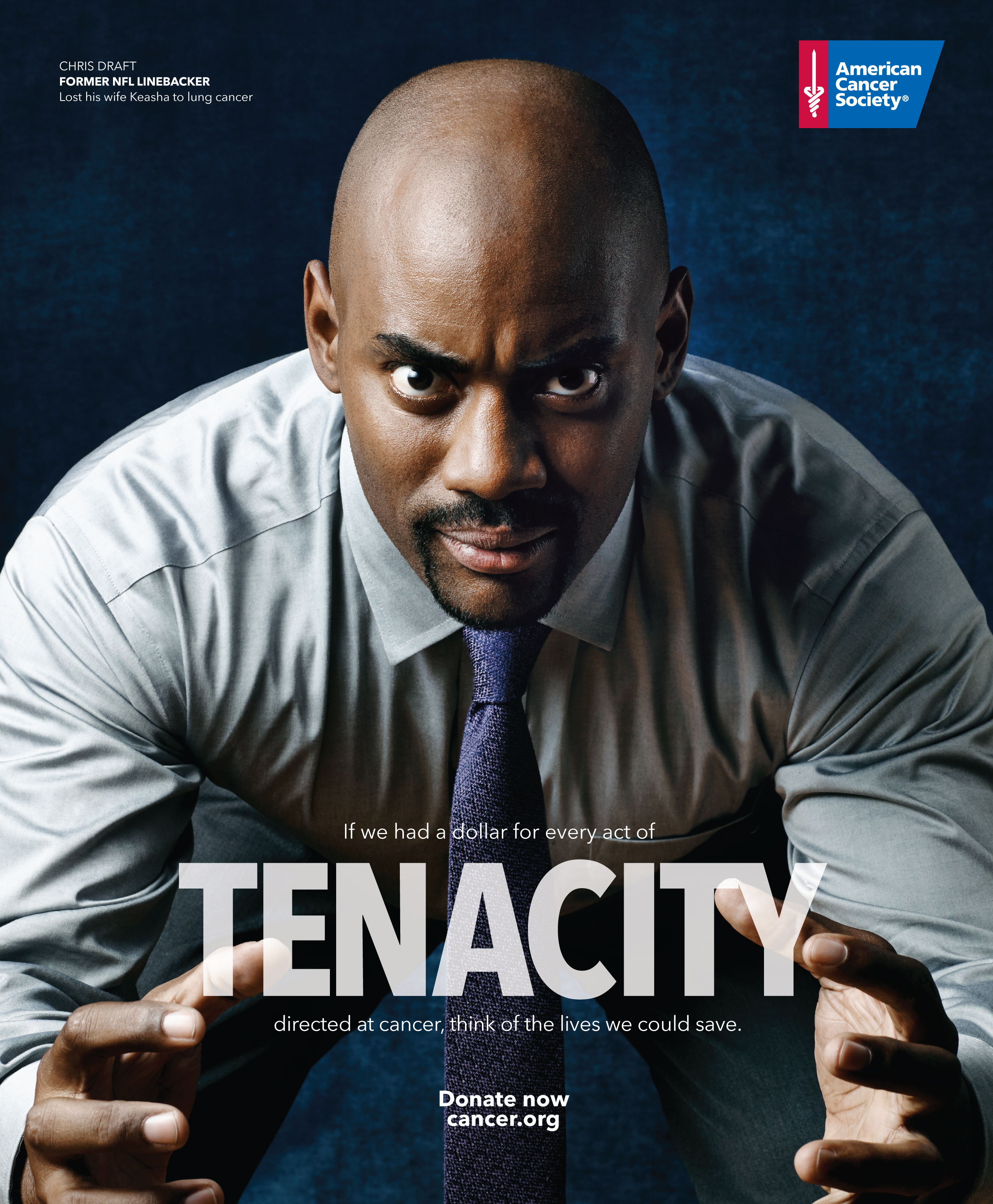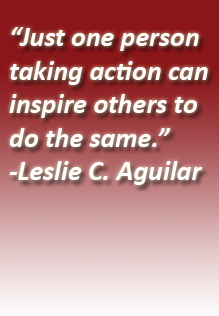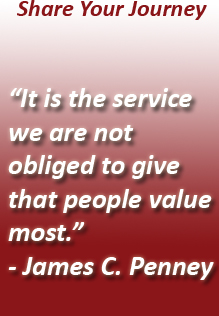Team Draft Co-Founder Chris Draft & ACS Share Hope for the Holidays


SHARE HOPE DURING THE HOLIDAYS
American Cancer Society shares new survey insights and helpful tips for supporting those impacted by cancer as part of its Advantage Humans Campaign
ATLANTA, November 30, 2015 – Feelings of hope and love are abundant during the holiday season – and they often do more for us than we think. The American Cancer Society’s new Advantage Humans campaign has issued a bold call to action encouraging the public to redefine victory over cancer, pitting an inspiring range of human traits and emotions against the disease as a new way to think about every day triumphs. As part of the campaign, a recent national online survey[1] found that hope is the No. 1 emotion that most helps those impacted by cancer get through their treatment.
“Hope is such an important word, because cancer doesn’t hide from anyone – we all know somebody who’s going through it or who has lost somebody, whether that’s a family member, a friend or a co-worker,” said Sandro Miller, the internationally acclaimed photographer and cancer survivor who shot the compelling Advantage Humans print and digital ads featuring true cancer stories. “It’s our responsibility as a community to understand how we can do something positive for not just the person impacted, but for the world.”
The online survey explored conversations and emotions about cancer among those impacted by cancer (patients, survivors and those who know a loved one or someone who has been diagnosed) and the general public. According to those who have been impacted by cancer, hope (69 percent) is the emotion that most helped them get through cancer treatment while 77 percent of Americans think love is the trait that’s most important to being able to cope with cancer.
The survey revealed three simple ways to help give someone impacted by cancer a little extra hope during the holidays:
1. Make your loved one aware of your support. The thing those impacted by cancer most wanted their friends and family to say to them was “I’m here for you” (58 percent), followed by “How can I help you through this?” (54 percent).
2. Don’t just talk, listen. Eighty-nine percent of those impacted by cancer would feel relieved to have someone who would really listen if they were given the opportunity to talk openly and honestly about their feelings.
3. Give them a hug. The thing those who have been impacted by cancer most wish they could do to express how they really feel about cancer is simple: hug (47 percent).
The survey also found discussions about cancer aren’t happening as regularly as they could be[2] – especially during the holidays, which 74 percent of Americans say is an especially difficult time to talk about the disease with friends and loved ones. But 94 percent of those impacted by cancer agree that talking honestly about their feelings is a good way to help them.
The Society offers a list of helpful “talking about cancer” dos and don’ts at cancer.org, along with a few additional tips:
· Ask what they are feeling. It can be easier to ask what someone is feeling versus how they’re feeling. This approach allows you to dig deeper into the conversation and gives the cancer survivor an easier way to be more descriptive.
· Remember that every cancer survivor is different. Each one faces a different journey. Try to gauge the individual and determine what works best for them. Keep in mind that some cultures have different approaches to conversations.
· Help with something specific. It can be thoughtful to ask open-ended questions like: “What do you need from me? What is it that I can do for you?” But, more often than not, people don’t feel comfortable asking for help even when you offer. It makes more sense to offer help with a specific task in mind – like a ride to treatment, taking care of dinner or finding a local support group or mental health provider trained in cancer to get more emotional support.
· Stay in touch. Research shows that the time period after treatment ends or when someone is diagnosed with a recurrence are very difficult times for cancer survivors. They often need more help but feel they have “burned out” their support network. Keep checking in and being a source of support.
· Find great resources to help. The Society’s National Cancer Information Center (1-800-227-2345) offers trained cancer specialists 24 hours a day, seven days a week to answer questions, provide reliable information about the disease, link callers with resources in their communities and provide details on local events. In 2015, the hotline has fulfilled over 1 million requests by phone, online chat and email.
HUMANS VS. CANCER: “ADVANTAGE HUMANS” CAMPAIGN
The spirit of the Society’s “Advantage Humans” campaign conveys the emotions inherent in each and every one of us to deal with the fight against cancer. Photographed and directed by two cancer survivors, the ad campaign brings to life the range of raw, powerful emotions – rage, anger, courage, hope, defiance and others – associated with cancer through the stories of real cancer survivors and their loved ones in print, digital and direct response ads. A few of the individuals featured include:
· Chris Draft (former NFL player): Tenacity. In 2010, Chris’ wife Keasha was diagnosed with advanced lung cancer after never smoking a day in her life. They got married on November 27, 2011 and she passed away one month later – but on their wedding day, they made a promise that they would work as a team to inspire hope for everyone affected by cancer. He has committed his time and resources to raising awareness for cancer.
· Isabel Lopez: Courage. At 15 years old, Isabel was diagnosed with T-Cell Lymphoblastic Lymphoma on her birthday. Her family and friends show their love and support for Isabel through her online movement #wedancewithIsa. As a dancer, Isabel knows that no one dances alone and just like this journey she is on, she continues to see the love from everyone around her.
· Lauren Smoke: Hope. Lauren was diagnosed with breast cancer while she was pregnant with her first child. She is currently undergoing treatment and recently gave birth to a healthy baby boy, Niko, which means victory.
· Chris Marquez: Defiance. Chris is an LA-based actor, model and screenwriter. He received a liver transplant several years ago, and was then diagnosed with liver cancer in the donor liver. He has since undergone chemotherapy and preventive surgery, and the cancer is isolated to his bladder.
“There are a lot of victories in life – if you’re lucky you experience them every day in some small way,” said Lauren Smoke. “Some things get in the way, but hope is what gets you through everything. What would we do without hope?”
To learn more about the Society’s work in research, prevention and detection, advocacy and service to support patients and caregivers of all ages, at all stages of cancer, visit cancer.org. You can also visit the Society on Facebook.
# # #
About the American Cancer Society
The American Cancer Society is a global grassroots force of 2.5 million volunteers saving lives threatened by every cancer in every community. As the largest voluntary health organization, the Society's efforts have contributed to a 22 percent decline in cancer death rates in the U.S. since 1991, and a 50 percent drop in smoking rates. We're the nation’s largest private, not-for-profit investor in cancer research, ensuring people facing cancer have the help they need and continuing the fight for access to quality health care, lifesaving screenings, clean air, and more. For more information, to get help, or to join the fight, call us anytime, day or night, at 1-800-227-2345 or visit cancer.org.
1About the Survey
KRC Research conducted this research via an online survey of a total of 1,005 U.S. adults ages 18+, with emphasis on cancer patients/survivors and those who know a loved one/someone who has been diagnosed with cancer, from October 29-November 1, 2015.
[1] KRC Research conducted this research via an online survey of a total of 1,005 U.S. adults ages 18+ from October 29 – November 1, 2015.
[2] Just 34 percent of those impacted by cancer report that they regularly have open conversations with friends and family, even though 64 percent of Americans would feel comfortable talking openly and honestly.

